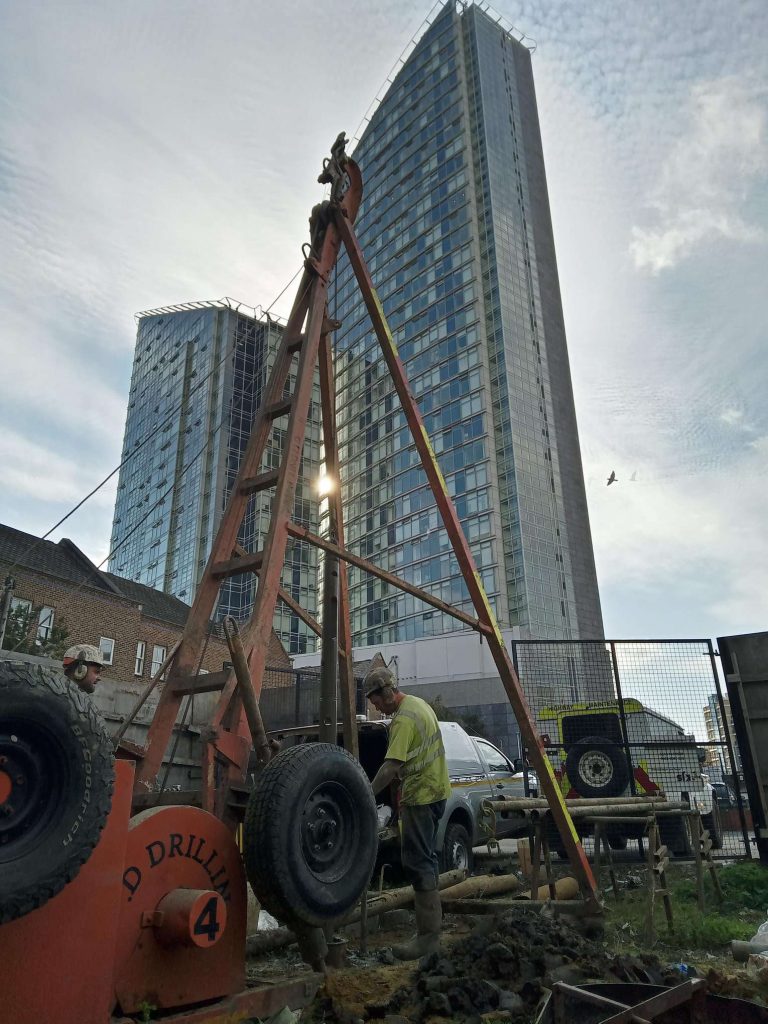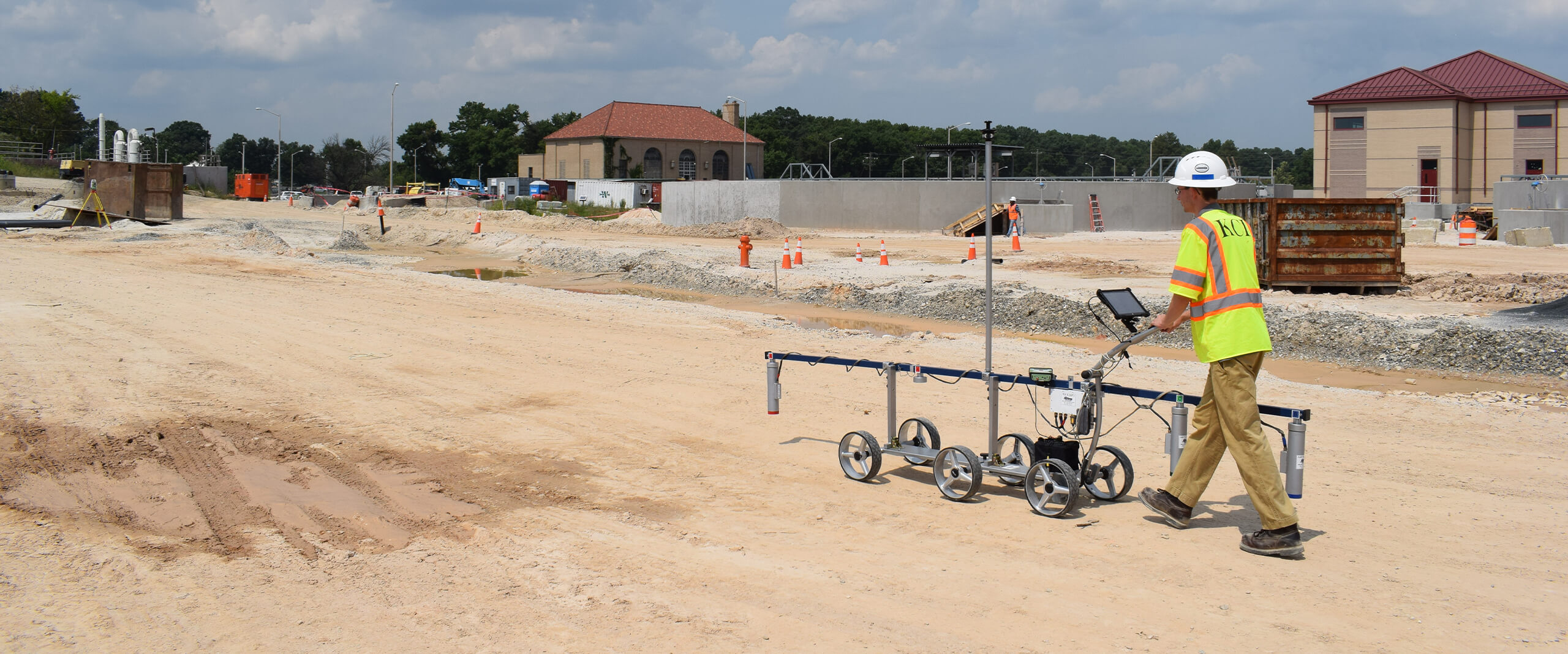Checking out the Perks of Geo Tech Engineering for Urban Planning
A Comprehensive Overview of the Trick Responsibilities of Geotechnical Engineers in Site Characterization and Ground Renovation Strategies for Engineering Solutions
Geotechnical engineers are important to the successful implementation of design projects, tasked with the crucial obligations of website characterization and the application of ground renovation techniques. Their work involves an extensive evaluation of subsurface conditions, employing numerous screening techniques to determine soil and rock residential or commercial properties. This fundamental expertise not only notifies design decisions however likewise reduces possible threats associated with ground instability. As we discover the complex functions of these experts, it becomes evident how their knowledge shapes the safety and performance of design options. What details strategies and analyses stick out in this crucial technique?
Function of Geotechnical Engineers
Geotechnical engineers play a pivotal function in the layout and building and construction of infrastructure by analyzing the actions of dirt and rock under the surface - geotechnical industry. Their duties encompass assessing subsurface problems to notify design choices that ensure architectural stability and safety. By carrying out thorough evaluations of soil buildings, consisting of shear compressibility, leaks in the structure, and strength, geotechnical engineers provide crucial data that influences the option of suitable building materials and strategies
In addition to assessing soil technicians, geotechnical engineers are entrusted with recognizing prospective dangers such as landslides, sinkholes, and ground settlements. Their knowledge aids reduce dangers connected with these geotechnical sensations, therefore securing both the environment and public safety and security. They likewise team up carefully with various other design self-controls, ensuring that geotechnical factors to consider are integrated into general task layout.
In addition, geotechnical engineers involve in the assessment of existing frameworks, providing suggestions for retrofitting and repair services when needed. Their detailed understanding of soil-structure communication is necessary for the development of sustainable framework remedies. Generally, the function of geotechnical engineers is indispensable to the effective understanding of building and construction jobs, guaranteeing they are safe, durable, and compliant with regulative standards.

Website Characterization Procedures
Effective website characterization procedures are crucial for comprehending the subsurface problems that affect project design and execution. Geotechnical designers use an organized strategy to collect, review, and translate data pertaining to dirt, groundwater, and rock attributes. This process begins with a comprehensive review of existing literature and historic website information, giving understandings into previous site conditions and possible obstacles.

Information evaluation adheres to fieldwork, where designers utilize geostatistical techniques to translate searchings for and develop geological designs. Via diligent website characterization, geotechnical designers lay the groundwork for successful project implementation, decreasing unanticipated difficulties and enhancing source allowance.
Dirt and Rock Screening Methods
While comprehending subsurface problems is vital, the choice of proper dirt and rock testing methods is equally crucial for accurate evaluation and layout. Geotechnical engineers utilize a selection of screening strategies to review the physical and mechanical residential properties of dirt and rock products.
Laboratory tests, such as Atterberg limitations, grain size analysis, and unconfined compressive strength tests, offer essential data on soil habits under various dampness problems and packing situations. These tests assist establish dirt classification and anticipate settlement or shear toughness features crucial more info here for structure layout.
In-situ screening approaches, including Standard Infiltration Tests (SPT), Cone Penetration Examinations (CPT), and stress meter tests, enable engineers to collect information directly from the ground. These approaches provide valuable insights into the dirt's density, uniformity, and stratification without the requirement for comprehensive sampling.
Rock screening usually includes core tasting and lab evaluation to analyze residential properties like uniaxial compressive stamina and rock top quality designation Full Article (RQD) Together, these soil and rock testing approaches enable geotechnical designers to make enlightened choices regarding site-specific difficulties, making sure the security and security of design solutions.
Ground Renovation Techniques
Ground improvement techniques are essential for boosting the engineering residential properties of soil, thus raising its load-bearing ability and minimizing settlement. These methods are crucial in dealing with challenges presented by weak or bothersome soils, which can considerably influence the stability and toughness of frameworks.
Different ground improvement methods are employed, consisting of compaction, grouting, and soil stablizing. Grouting, on the various other hand, includes infusing a fluid material into the ground to load spaces and boost dirt cohesion.
Soil stablizing incorporates an array of techniques, from chemical ingredients to mechanical therapies, focused on boosting the dirt's resistance to disintegration and contortion. Strategies such as lime stabilization or concrete mixing alter the buildings of the soil at a fragment degree, enhancing its overall efficiency.
Relevance of Geotechnical Evaluations
Geotechnical evaluations play an important duty in the preparation and style of design jobs, as they offer important information concerning the subsurface conditions. Understanding soil properties, rock formations, groundwater degrees, and potential geohazards is important for ensuring the stability and security of frameworks. These analyses allow designers to make educated decisions pertaining to website choice, design parameters, and construction methods.
The importance of geotechnical evaluations extends beyond preliminary project stages; they are critical in danger management and price performance. By identifying prospective issues early, such as soil negotiation, incline instability, or too much groundwater, designers can develop proper mitigation methods, lowering the possibility of architectural failings and pricey hold-ups. These evaluations support conformity with governing needs and boost the sustainability of design practices.

Verdict
In conclusion, geotechnical designers are crucial to making certain the safety and security and stability of engineering projects with comprehensive website characterization and ground renovation methods. geo tech engineering. Their organized strategy to evaluating subsurface problems, combined with their suggestions for effective ground adjustment, significantly enhances dirt residential properties and load-bearing capacity. The experience of geotechnical engineers not only assists in informed project preparation however additionally makes sure compliance with policies and fosters efficient interaction amongst stakeholders, inevitably adding to effective design end results
Geotechnical engineers play a pivotal role in the style and building of infrastructure by assessing the behavior of soil and rock below the surface. By carrying out thorough analyses of soil residential properties, consisting of shear toughness, permeability, and compressibility, geotechnical engineers give crucial information that affects the selection of suitable building materials and techniques.
In addition to examining soil technicians, geotechnical engineers are tasked with identifying prospective hazards such as landslides, sinkholes, and ground settlements. Geotechnical engineers use a methodical technique to gather, review, and analyze data pertaining to rock, groundwater, and soil attributes. By determining potential problems early, such as soil settlement, incline instability, or too much groundwater, designers can devise proper reduction strategies, lowering the likelihood of structural failings and costly delays.